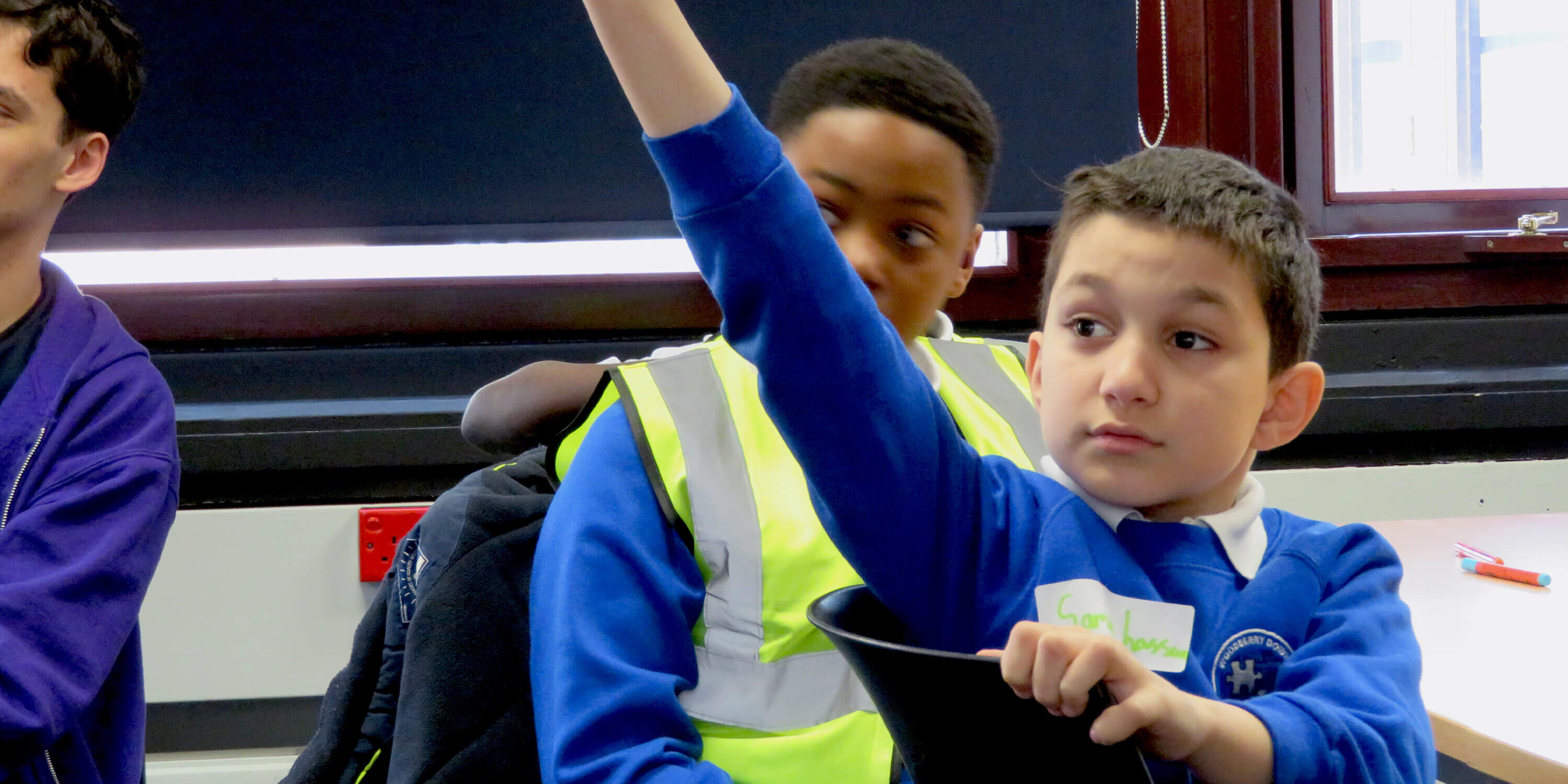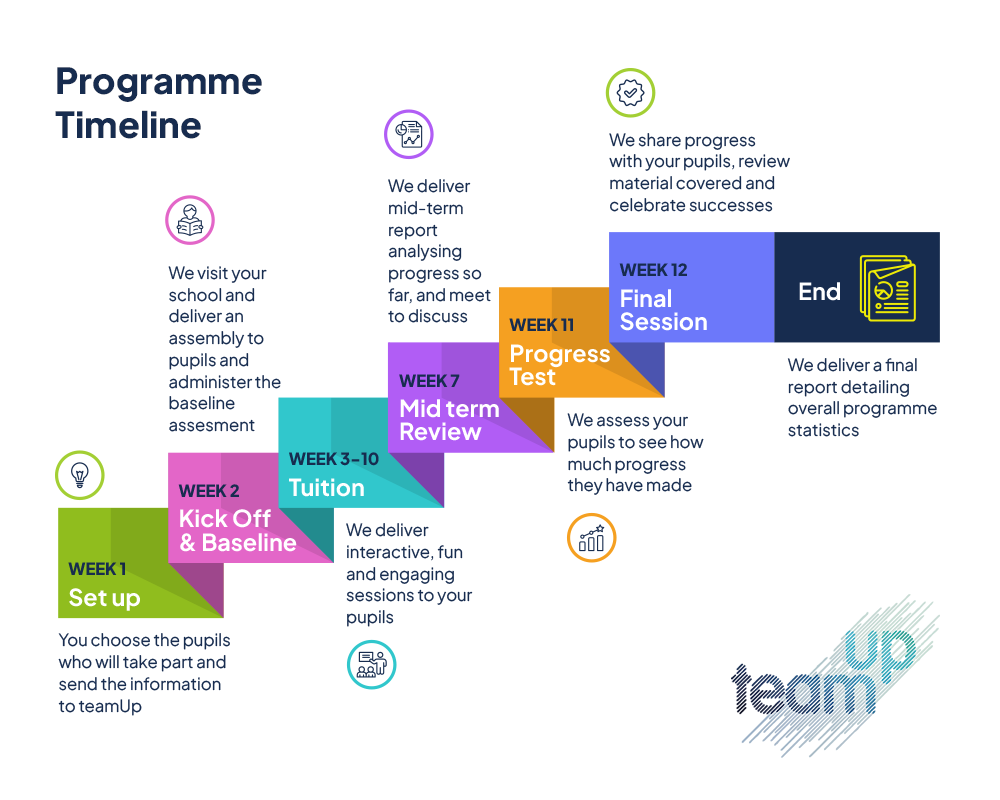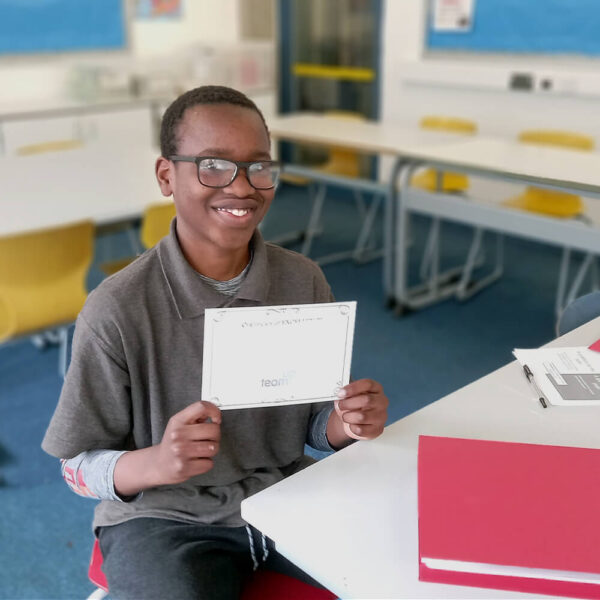Our inspiring, highly-trained volunteer tutors work in primary and secondary schools in London with underachieving, disadvantaged young people in Years 4 to 11.
Over a 12-week programme, they tutor the same group of 2-3 pupils in English or maths for 60-90 minutes a week. They also work to build students’ confidence and resilience during standalone sessions and using proven techniques woven into our curriculum.
Our workplace partners, including HSBC and the EY Foundation, also offer inspiring workshops to our schools where pupils can get career advice, learn about money and finances, develop their communication skills and more. These are complementary and optional sessions we can include into our programmes.
The students we work with are from low-income backgrounds, and are often underachieving. We don’t specialise in high need SEN, new arrival EAL or high behavioural needs, but many are low in confidence and find it difficult to engage. We tailor our programme to each pupil’s needs.




